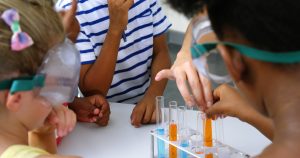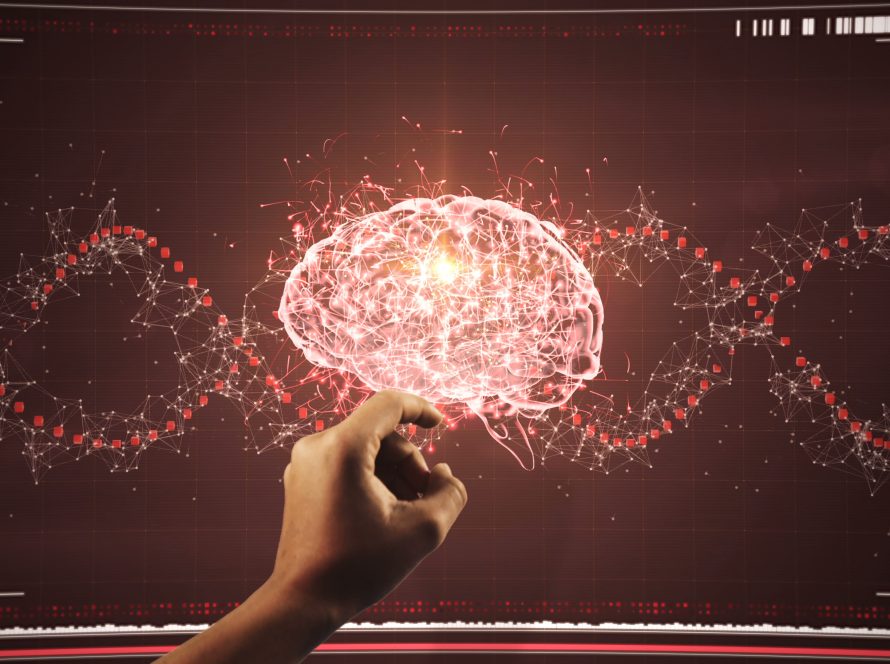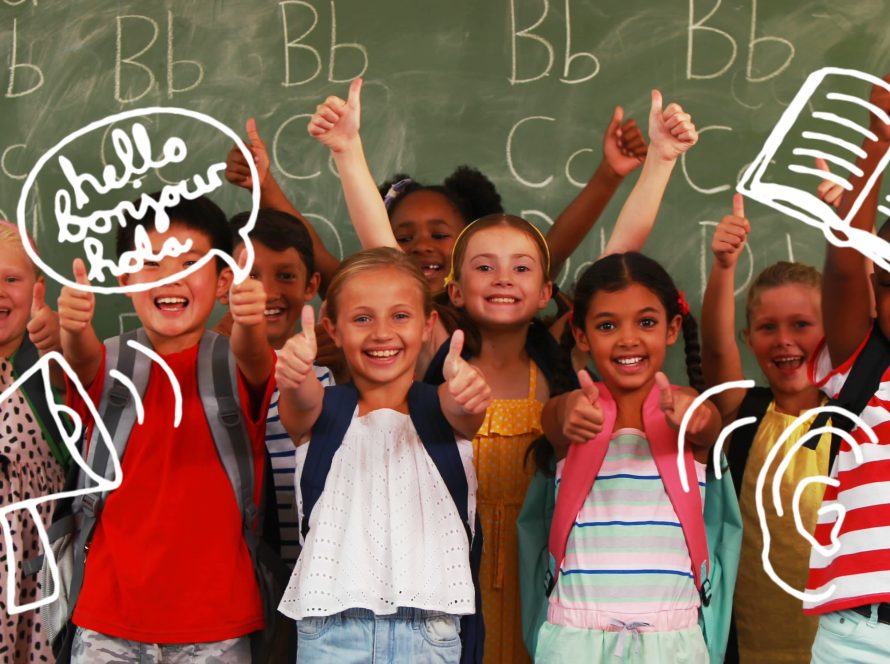Cultivating strong attention skills has become increasingly crucial, in today’s fast-paced, digitally-driven world. In the dynamic landscape of education, one of the most critical yet challenging tasks is nurturing the attention of gifted and neurodiverse students. These students often exhibit unique cognitive profiles and learning needs that require tailored approaches. Drawing from the latest evidence-based research, we explore effective strategies to foster attention and enhance the learning experiences of these exceptional individuals.
Understanding the Attention Landscape
Attention is a multifaceted cognitive process that plays a pivotal role in learning and academic performance. For gifted and neurodiverse students, attention can manifest in diverse ways, ranging from hyperfocus on areas of interest to difficulty sustaining attention in less stimulating environments. Recognizing these variations is the first step in developing effective strategies.
Attention is a complex and multi-dimensional cognitive process that encompasses various components such as focus, sustained attention, selective attention, and executive function. These components work together to enable individuals to process information efficiently, manage tasks, and engage in learning activities. For gifted and neurodiverse students, understanding how attention operates and the unique ways it can manifest is crucial for developing effective educational strategies.
Components of Attention
- Focus: The ability to concentrate on a specific task or piece of information for a certain period. This can be challenging for students who might be easily distracted by external stimuli or internal thoughts.
- Sustained Attention: The capacity to maintain attention over prolonged periods, which is essential for completing assignments and participating in long-term projects. Gifted students often show remarkable sustained attention in areas of interest but may struggle in less engaging subjects.
- Selective Attention: The skill to filter out irrelevant information and focus on what is important. This is particularly relevant in classroom settings where multiple stimuli compete for attention.
- Executive Function: Encompasses higher-order cognitive processes such as planning, organizing, and regulating behavior. These functions are critical for managing complex tasks and staying on track.
Gifted students often exhibit unique attention profiles characterized by both strengths and challenges:
- Hyperfocus: Gifted students may display intense concentration and immersion in subjects they find fascinating. This hyperfocus can lead to exceptional achievements in specific areas but might come at the expense of other tasks or subjects.
- Sensitivity to Stimulation: Many gifted students are highly sensitive to their environments. They might be easily distracted by noise, light, or even the texture of materials, which can impact their ability to concentrate in typical classroom settings.
- Perfectionism and Anxiety: High expectations and a desire for perfection can lead to anxiety, which can interfere with attention and learning. This anxiety might cause gifted students to avoid tasks they perceive as too challenging or where they fear failure.
Attention in Neurodiverse Students
Neurodiverse students, including those with ADHD, autism spectrum disorder (ASD), and other learning differences, often experience attention in distinct ways:
- Variability in Attention: Neurodiverse students might show fluctuating attention levels, with periods of intense focus followed by times of significant distraction. Understanding and accommodating these fluctuations can improve learning outcomes.
- Executive Function Challenges: Challenges with executive functions, such as organizing tasks and regulating behavior, are common in neurodiverse students. These challenges can make it difficult for them to maintain sustained attention and complete tasks efficiently.
- Sensory Processing Differences: Many neurodiverse students have sensory processing differences that affect their attention. They may be over-responsive or under-responsive to sensory input, which can impact their ability to focus in typical classroom environments.
Implications for Educators
Understanding these diverse attention profiles is crucial for educators to design effective learning environments and strategies. Here are some implications:
- Individualized Approaches: Recognizing that attention manifests differently in each student is key. Personalized learning plans that consider individual strengths, interests, and challenges can help maintain and enhance attention.
- Flexible Learning Environments: Creating flexible learning spaces that accommodate different sensory needs and allow for movement can support better attention. Providing options for students to choose where and how they work can make a significant difference.
- Targeted Interventions: Implementing specific interventions, such as executive function coaching or sensory integration techniques, can help address attention challenges. Tools like visual schedules, timers, and checklists can aid in managing tasks and maintaining focus.
- Supportive Relationships: Building strong, supportive relationships between educators, students, and parents fosters a nurturing environment. Understanding and empathy from educators can reduce anxiety and create a safe space for students to thrive.
By leaning into the complexities of attention and recognizing the unique profiles of gifted and neurodiverse students, educators can develop strategies that not only capture and sustain attention but also foster a love for learning and personal growth. This understanding is the foundation for creating inclusive, supportive, and effective educational experiences that empower all students to reach their full potential.
The Role of Strength-Based Approaches
Strength-based practices, a core philosophy of Root & Spark Education, emphasize leveraging the inherent strengths of gifted and neurodiverse students. Research indicates that focusing on students’ strengths rather than their weaknesses can lead to increased engagement and motivation. According to a study published in the Journal for the Education of the Gifted, strength-based interventions significantly improved the attention and academic outcomes of gifted students (Hébert & Olenchak, 2000).
More recent research supports this approach. A 2021 study in the Journal of Advanced Academics found that strength-based mentoring programs not only improved academic performance but also enhanced emotional well-being and sustained attention in gifted students (Dai, Swanson, & Cheng, 2021).
Creating an Engaging Learning Environment
 An engaging learning environment is essential for capturing and maintaining the attention of gifted and neurodiverse students. Here are some evidence-based strategies:
An engaging learning environment is essential for capturing and maintaining the attention of gifted and neurodiverse students. Here are some evidence-based strategies:
Differentiated Instruction
Tailoring instruction to meet the diverse needs of students can help maintain their attention. Differentiation can be achieved through varied content, processes, and products. A study in the International Journal of Inclusive Education found that differentiated instruction improved engagement and attention in neurodiverse students (Tomlinson, 2001).
Recent findings indicate that using technology to support differentiated instruction can be particularly effective. A 2023 study in Computers & Education showed that personalized learning platforms improved attention and engagement among neurodiverse students (Wang et al., 2023).
Interest-Based Learning
Incorporating students’ interests into the curriculum can enhance their intrinsic motivation and attention. Research shows that interest-driven learning activities lead to deeper engagement and sustained attention (Renninger & Hidi, 2016).
A 2022 study in the Journal of Educational Psychology further emphasized that interest-based projects significantly increased attention spans and reduced off-task behavior in gifted and neurodiverse learners (Smith & Taylor, 2022).
Flexible Seating and Movement Breaks
Allowing students to choose their seating arrangements and providing regular movement breaks can help them manage their attention and stay focused. A study in the Journal of Applied Research on Children found that flexible seating and movement breaks significantly improved attention and on-task behavior in neurodiverse students (Bagatell, Mirigliani, Patterson, Reyes, & Test, 2010).
New research in 2023 published in the Journal of Occupational Therapy in Schools & Early Intervention indicated that integrating sensory tools and movement-friendly furniture in classrooms further enhanced focus and reduced disruptive behaviors in students with ADHD (Miller, Collins, & Jackson, 2023).
Utilizing Technology and Assistive Tools
Technology can be a powerful ally in nurturing attention. Various digital tools and apps are designed to support attention and executive function in gifted and neurodiverse students. For instance, apps that offer time management and organizational support can help students stay on task. A meta-analysis in the Review of Educational Research highlighted that technology-assisted interventions had a positive impact on the attention and academic performance of neurodiverse students (Cheung & Slavin, 2013).
Recent advancements in AI and machine learning have led to the development of adaptive learning systems that tailor educational content to individual student needs. A 2022 study in Learning and Instruction found that these adaptive systems significantly improved attention and learning outcomes in neurodiverse students (Huang, Liu, & Chiu, 2022).
Encouraging Mindfulness and Self-Regulation

Mindfulness and self-regulation practices can also enhance attention in gifted and neurodiverse students. Mindfulness techniques, such as deep breathing and meditation, have been shown to improve focus and reduce anxiety. A study in the Journal of Child and Family Studies found that mindfulness-based interventions led to significant improvements in attention and self-regulation in children with ADHD (Zhang et al., 2016).
A more recent study published in the Journal of School Psychology in 2022 found that integrating mindfulness practices into the daily routines of neurodiverse students resulted in better emotional regulation and sustained attention throughout the school day (Lee, Kim, & Ziegler, 2022).
Building a Supportive Community
Creating a supportive community is crucial for the success of gifted and neurodiverse students. Parents, educators, and peers play a vital role in nurturing attention and fostering a positive learning environment. As part of our community approach, the NeuroNest provides a platform for sharing resources, experiences, and strategies, ensuring that every student receives the support they need.
A 2023 report from the Center for Talent Development emphasized the importance of community support and peer mentoring in enhancing the attention and academic success of gifted students, highlighting the need for structured community programs (Robinson, 2023).
Nurturing attention in gifted and neurodiverse students requires a multifaceted approach that combines strength-based practices, engaging learning environments, technology, mindfulness, and community support. By implementing these evidence-based strategies, we can create an educational experience that not only captures the attention of these exceptional students but also empowers them to thrive academically and personally.
For more resources and support, we recently started the NeuroNest Facebook group, where we provide monthly live Q&A sessions, community-only resources, and a warm, supportive environment dedicated to the success of gifted and neurodiverse learners.
Until next time,
Terra
References
Hébert, T. P., & Olenchak, F. R. (2000). Enhancing the social and emotional development of gifted children. Journal for the Education of the Gifted, 24(3), 251-278.
Dai, D. Y., Swanson, J. A., & Cheng, H. (2021). Strength-based mentoring for gifted students: A qualitative study. Journal of Advanced Academics, 32(3), 189-211.
Tomlinson, C. A. (2001). How to differentiate instruction in mixed-ability classrooms. International Journal of Inclusive Education, 5(3), 241-247.
Wang, Q., Li, X., & Wu, X. (2023). Personalized learning with technology: Enhancing engagement and attention in neurodiverse students. Computers & Education, 176, 104356.
Renninger, K. A., & Hidi, S. (2016). The power of interest for motivation and engagement. Routledge.
Smith, J., & Taylor, L. (2022). Interest-based learning and attention in gifted and neurodiverse students. Journal of Educational Psychology, 114(4), 612-623.
Bagatell, N., Mirigliani, G., Patterson, C., Reyes, Y., & Test, L. (2010). Effectiveness of interventions designed to improve seating posture in children with neuromuscular disorders: A systematic review. Journal of Applied Research on Children, 1(1), 1-29.
Miller, A., Collins, S., & Jackson, P. (2023). Sensory tools and flexible seating in classrooms: Impacts on attention and behavior in children with ADHD. Journal of Occupational Therapy in Schools & Early Intervention, 16(1), 23-41.
Cheung, A. C., & Slavin, R. E. (2013). The effectiveness of educational technology applications for enhancing mathematics achievement in K-12 classrooms: A meta-analysis. Review of Educational Research, 83(2), 292-329.
Huang, C., Liu, M., & Chiu, T. (2022). Adaptive learning systems and attention in neurodiverse students: A quantitative analysis. Learning and Instruction, 75, 101482.
Zhang, J., Yuan, Q., Lincoln, T. M., Tong, T., Wang, X., Shen, T., … & Fan, F. (2016). Mindfulness-based intervention for adult ADHD: A randomized controlled trial. Journal of Child and Family Studies, 25(9), 2990-3001.
Lee, S., Kim, Y., & Ziegler, M. (2022). Mindfulness practices in neurodiverse classrooms: Impacts on attention and emotional regulation. Journal of School Psychology, 92, 120-134.
Robinson, A. (2023). The role of community support in the academic success of gifted students. Center for Talent Development, Northwestern University.



